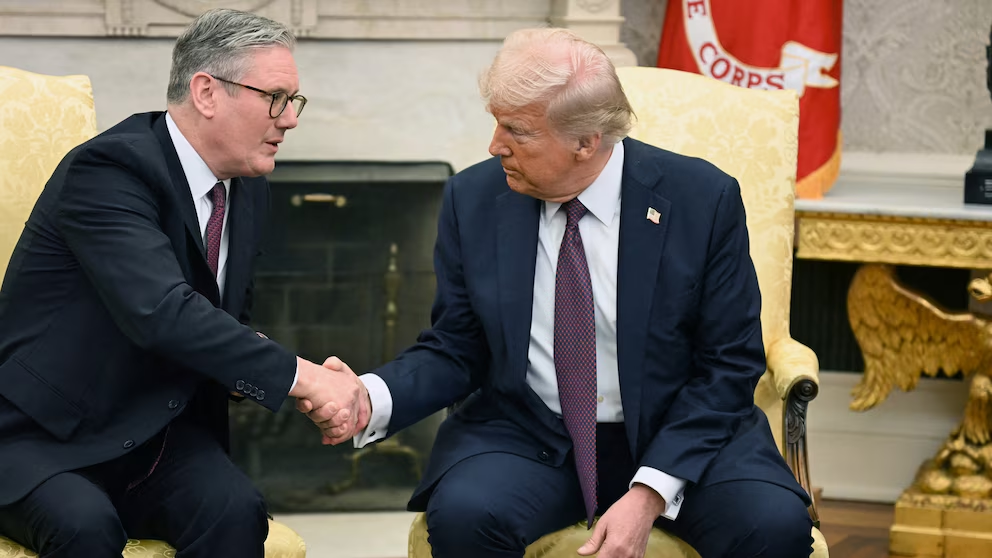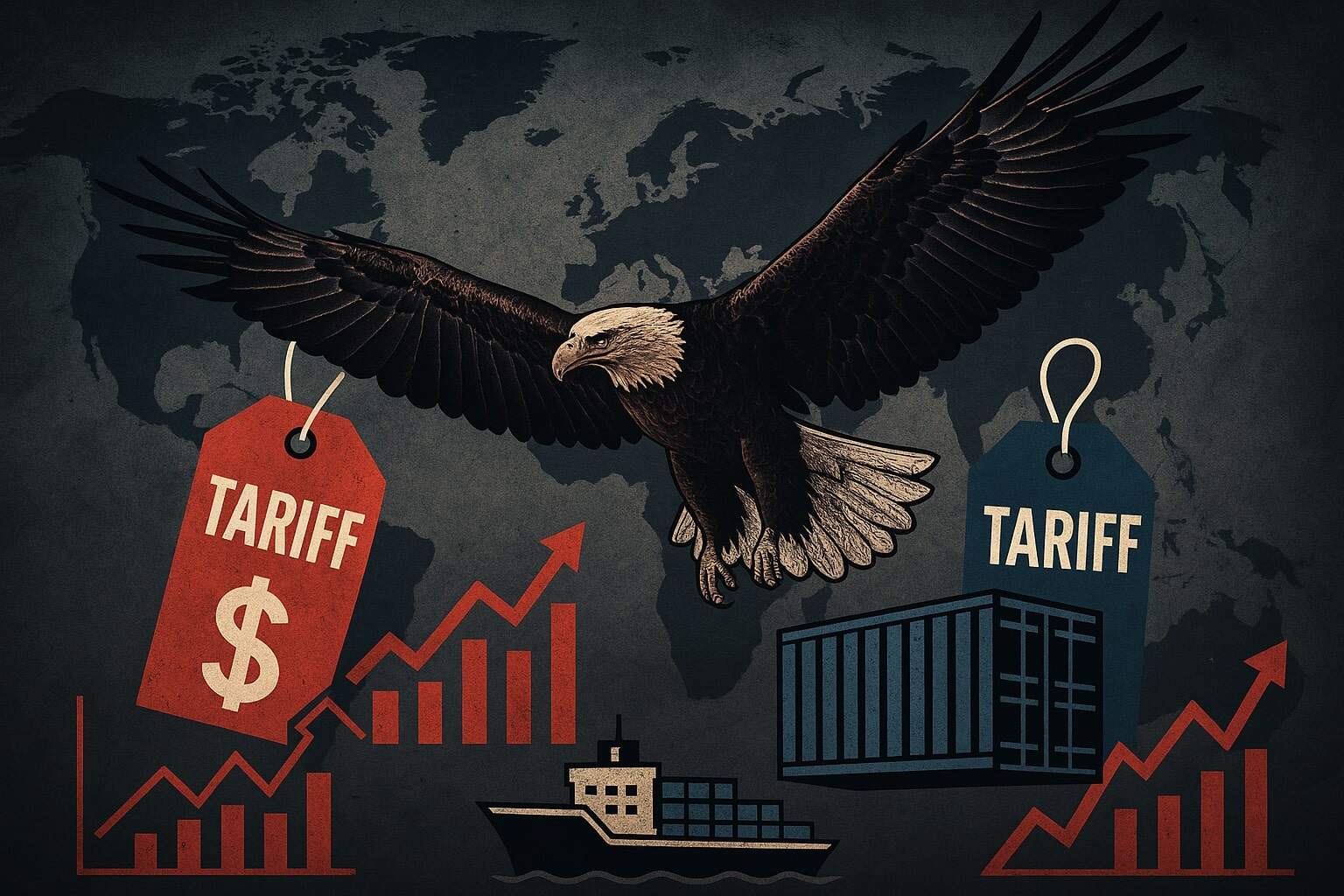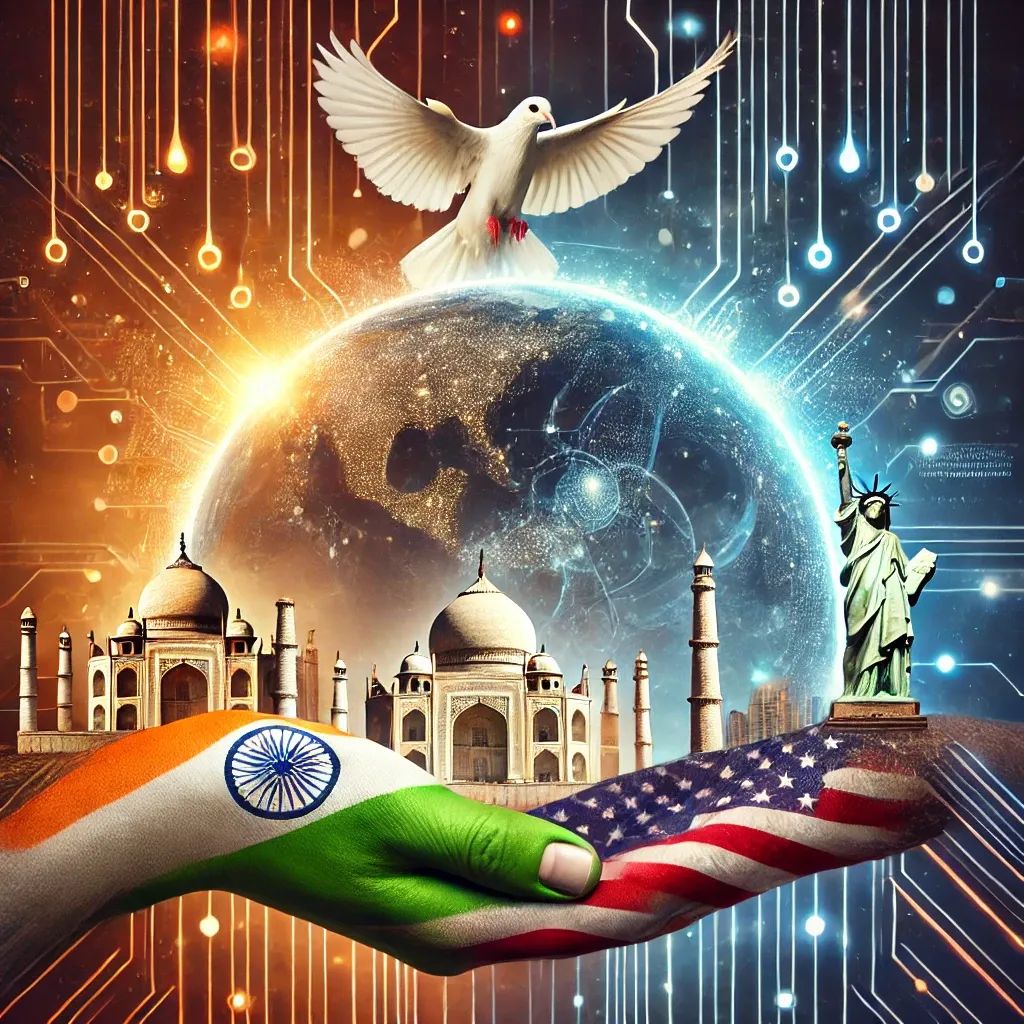In the ever-shifting landscape of global diplomacy, few moments carry as much weight as a high-profile meeting between world leaders. When UK Prime Minister Keir Starmer met US President Donald Trump at the White House, the encounter was more than just a routine diplomatic engagement—it was a delicate balancing act that would shape transatlantic relations, trade policies, and the future of international security.

Starmer’s Calculated Charm Offensive: Winning Over Trump
Keir Starmer’s approach to this meeting was nothing short of strategic. From the outset, he sought to establish a warm rapport with Trump, leveraging one of the most powerful tools in diplomatic engagement—flattery. The pièce de résistance of his charm offensive was an unprecedented invitation from King Charles III, inviting Trump for a second state visit to the UK. This was a significant diplomatic move, as no other US president had been offered two state visits. Starmer clearly understood Trump’s deep appreciation for prestige and recognition, and his strategy worked—Trump accepted the invitation enthusiastically, calling it an “honour” and speaking warmly of King Charles.

Beyond the symbolic gesture, Starmer subtly maneuvered the conversation to align with Trump’s worldview. He framed UK and European support for Ukraine not as an ideological or humanitarian necessity, but as a financial and strategic opportunity. This reframing resonated with Trump’s “America First” policy, positioning the UK as a valuable partner rather than an ally demanding support. In a moment of high-stakes diplomacy, Starmer even went so far as to thank Trump for his efforts in “making peace possible” in Ukraine—a statement carefully designed to appeal to Trump’s self-image as a dealmaker, despite his past criticisms of NATO and skepticism toward aid for Ukraine.
Trump’s Subtle Shift on Ukraine: Economic Interests Over Military Support
Perhaps the most notable outcome of the meeting was a subtle but significant shift in Trump’s rhetoric on Ukraine. Just days before, Trump had referred to Ukrainian President Volodymyr Zelenskyy as a “dictator.” However, following his meeting with Starmer, his tone changed. He described Zelenskyy as “very brave” and acknowledged the courage of Ukrainian soldiers. This marked a clear departure from his previously dismissive stance.
However, Trump’s shift was not necessarily a complete reversal of his position. Instead of promising military aid, he focused on economic cooperation, particularly a potential deal for US access to Ukraine’s rare earth minerals—strategically vital resources for technology and defense industries. This move signals that while Trump may be reluctant to engage in direct military support, he is open to maintaining a US presence in Ukraine through economic means. Starmer’s careful navigation of this issue helped ensure that the UK’s position on Ukraine remained aligned with the broader European strategy while keeping Trump engaged in the conversation.
The Trade Talks: Starmer’s Tough Negotiation Tactics
Trade was another crucial aspect of the discussion, particularly given Trump’s well-documented preference for protectionist policies. Earlier in 2025, Trump had announced tariffs on imports from Canada, Mexico, and China, sparking fears that the UK could face similar economic barriers. Starmer, aware of these concerns, lobbied aggressively for a favorable trade deal, emphasizing the strength and fairness of existing UK-US trade relations.
Trump responded positively, stating that a “real trade deal” could be reached “very quickly” and suggesting that the UK might avoid harsh tariffs. He even complimented Starmer’s negotiation skills, calling him a “tough negotiator.” This acknowledgment was a testament to Starmer’s effectiveness in securing positive signals from Trump, though the true test will be whether these verbal assurances translate into concrete policy agreements.
The Chagos Islands and UK Sovereignty: A Diplomatic Victory?
One of the lesser-known but highly significant aspects of the meeting was the discussion surrounding the Chagos Islands dispute. The UK has long sought to transfer sovereignty of the islands to Mauritius while maintaining a long-term lease on the strategic military base there. Given the US’s vested interest in the base, Trump’s approval was crucial.
Surprisingly, Trump appeared inclined to support the UK’s plan, marking an early diplomatic win for Starmer. This move not only reinforced the UK’s global standing but also demonstrated Starmer’s ability to navigate complex geopolitical issues with a level of finesse that ensured both UK and US interests were served.
Starmer’s Balancing Act: Challenging Trump Without Alienating Him
One of the most delicate challenges for Starmer was how to handle Trump’s often controversial claims. A prime example was Trump’s assertion that European aid to Ukraine was mostly in the form of loans. Starmer, without directly contradicting Trump, diplomatically clarified that much of Europe’s support had been grants rather than loans. This approach—challenging inaccuracies without overtly confronting Trump—mirrored the tactics employed by French President Emmanuel Macron earlier in the week.
Another moment of subtle pushback occurred when Trump interrupted Starmer mid-sentence during a discussion about Canada’s role in global affairs. Instead of reacting negatively, Starmer smoothly pivoted back to the main discussion, maintaining the cordial atmosphere while ensuring that the UK’s position was firmly communicated.
The Broader Geopolitical Context: Europe’s Strategy for Engaging with Trump
Starmer’s meeting with Trump did not occur in isolation—it was part of a broader European strategy to ensure that Trump remained engaged in transatlantic security affairs. Reports suggested that Trump nearly canceled his meeting with Zelenskyy, only reinstating it after Macron’s intervention. This underscores the crucial role that European leaders, including Starmer, are playing in maintaining dialogue between the US and Ukraine.
With an upcoming European summit in London, Starmer’s diplomatic efforts will continue as he collaborates with other European leaders to strategize around Trump’s evolving stance on international affairs. The key question remains: Can Europe persuade Trump to commit to long-term security engagements, or will his “America First” doctrine lead to further disengagement?

The India-EU Factor: A New Axis in Global Trade and Security
While the Starmer-Trump meeting dominated headlines, another critical development in global diplomacy was unfolding: the ongoing negotiations between India and the European Union (EU). India and the EU are working to finalize a landmark Free Trade Agreement (FTA) by the end of 2025, a deal that would be one of the largest of its kind globally.
The negotiations, however, have faced hurdles, particularly over tariffs on European cars and alcohol. The EU has made it clear that without significant tariff reductions, the deal may not move forward. India, on the other hand, is cautious about opening its markets too quickly.
Beyond trade, India and the EU are also working toward a new security and defense partnership. With shifting US policies under Trump and growing concerns about China’s influence, Europe sees India as a crucial ally in maintaining geopolitical balance.
Final Thoughts: A World in Transition
The meeting between Keir Starmer and Donald Trump was more than just a diplomatic engagement—it was a microcosm of the broader geopolitical shifts happening worldwide. Starmer’s approach—flattering Trump while subtly challenging him—proved effective in maintaining strong UK-US relations and ensuring that key issues such as Ukraine, trade, and security remained on the agenda.
However, uncertainties remain. Will Trump follow through on his softer stance on Ukraine? Will the UK successfully secure a trade deal without facing tariffs? How will Trump’s foreign policy impact NATO and European security in the long run?
At the same time, the parallel India-EU negotiations highlight the emergence of new global alliances. As the US recalibrates its approach to international engagement, countries like India and regional blocs like the EU are stepping up to fill the void, forging new economic and security partnerships that will shape the future of global power dynamics.
One thing is certain: The world is in a state of flux, and the decisions made today will have lasting consequences for years to come.





I have to thank you for the efforts you have put in penning this blog.
I am hoping to check out the same high-grade blog
posts by you in the future as well. In fact, your creative writing
abilities has encouraged me to get my very own site now 😉
Thank you so much for your kind words! 😊 I’m really glad you found the blog helpful and inspiring. Wishing you all the best with your own site—go for it! 🚀